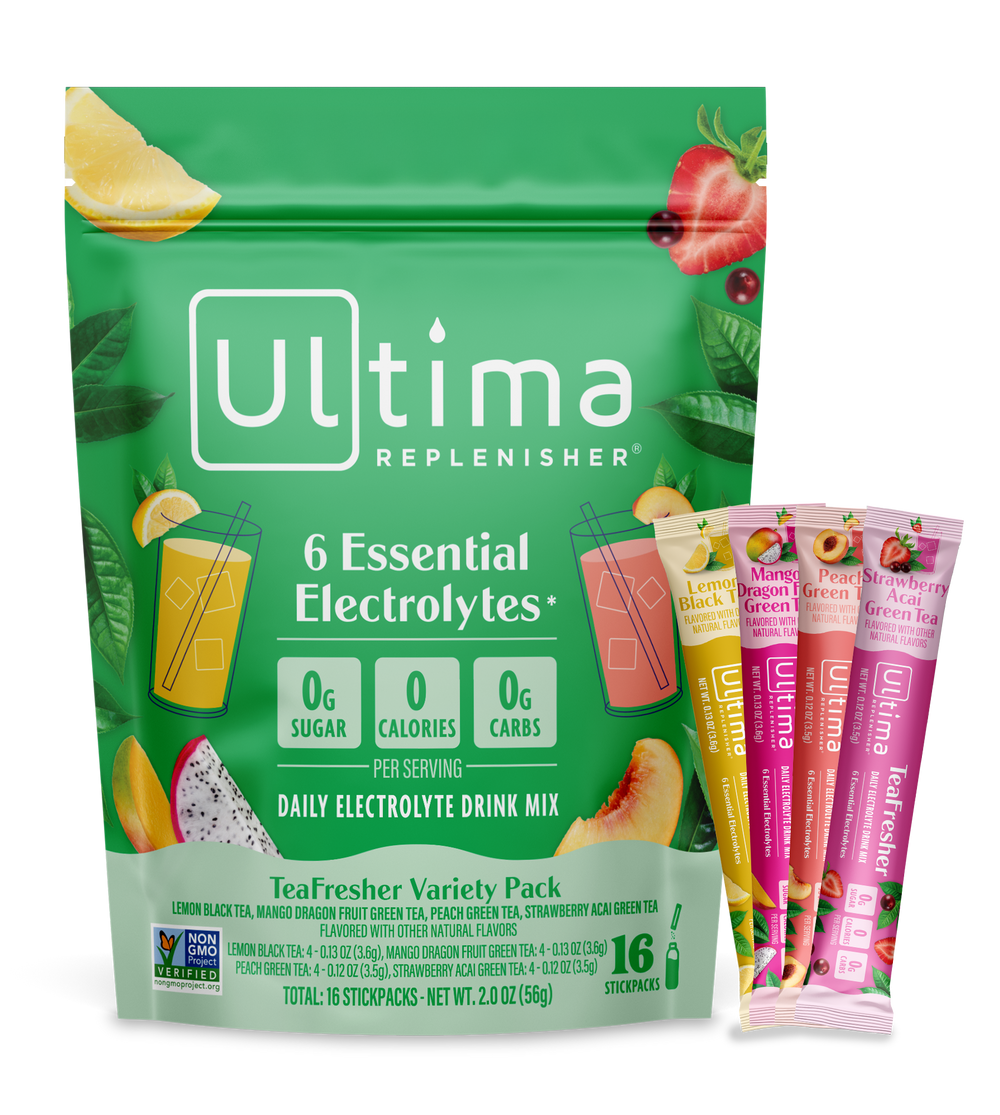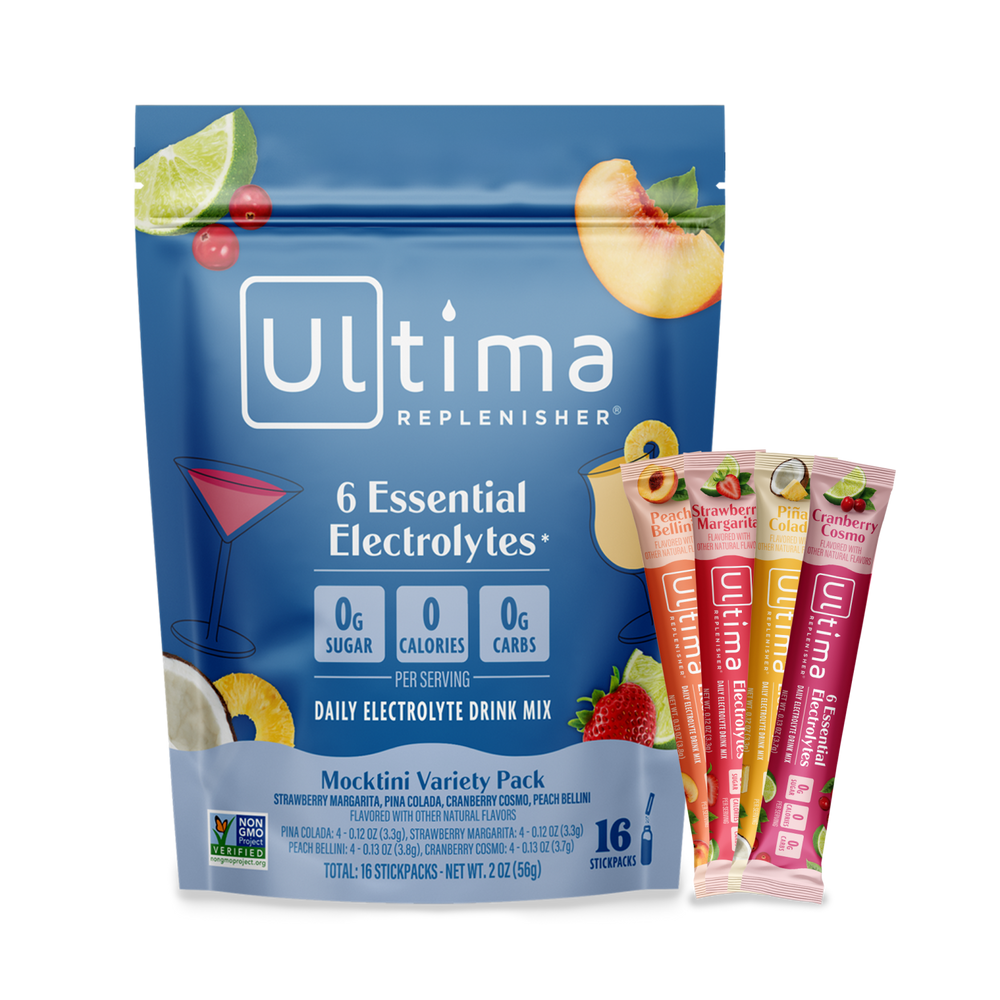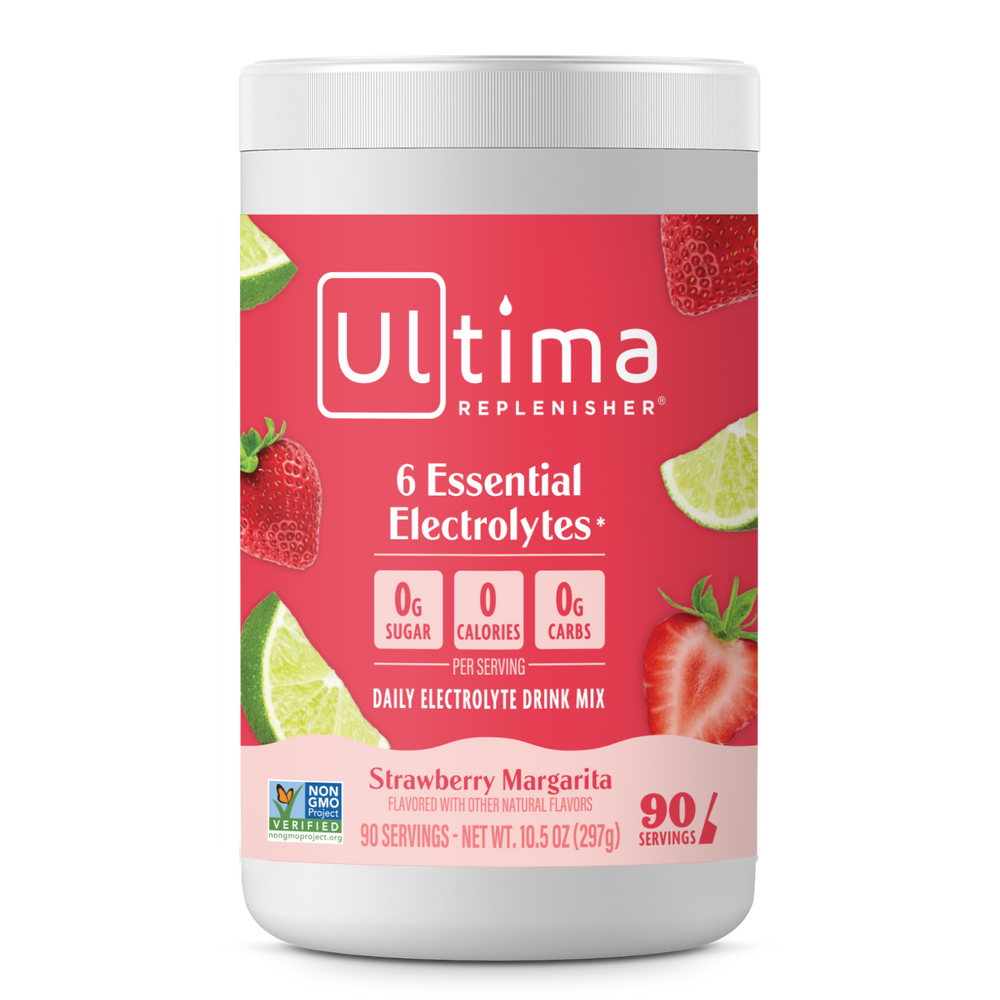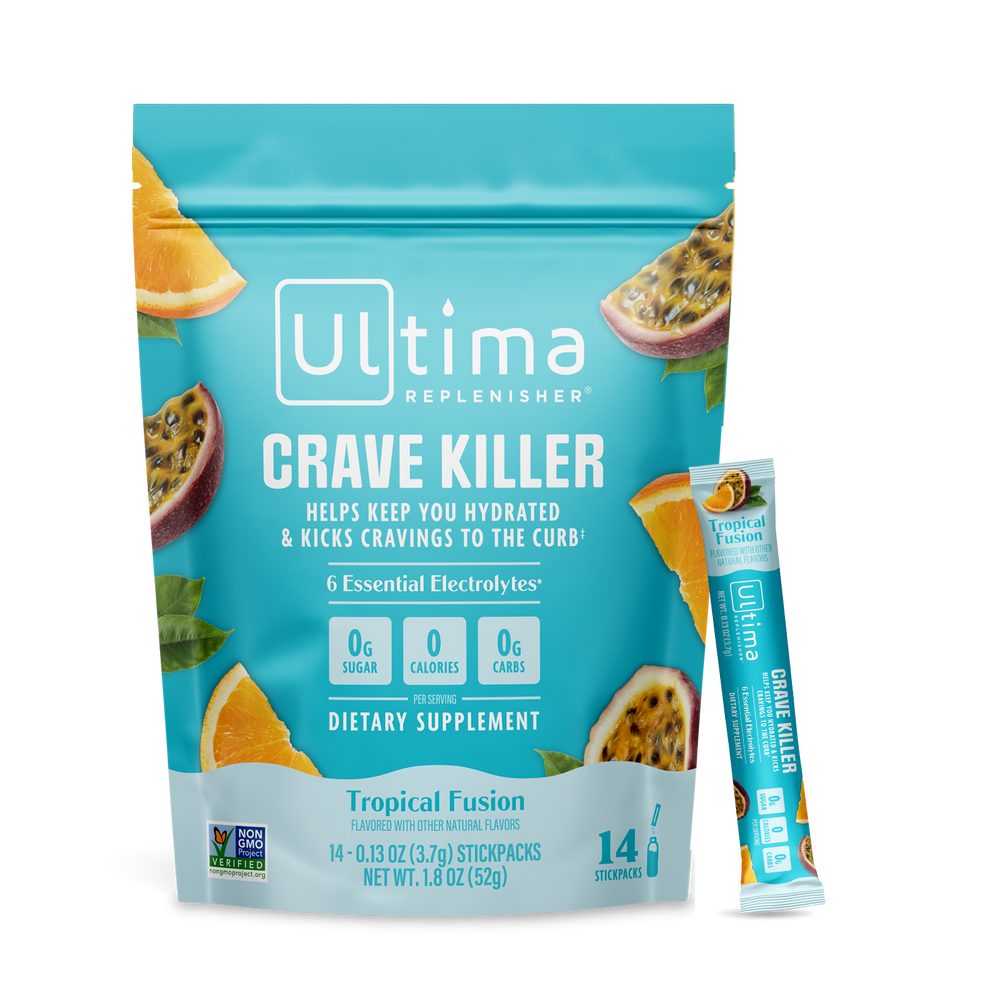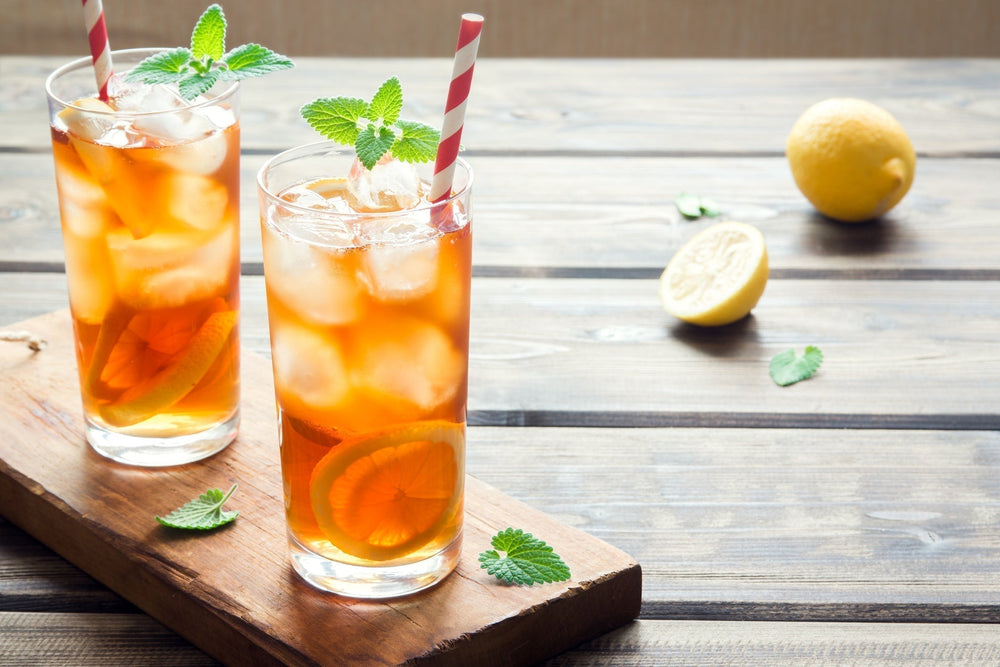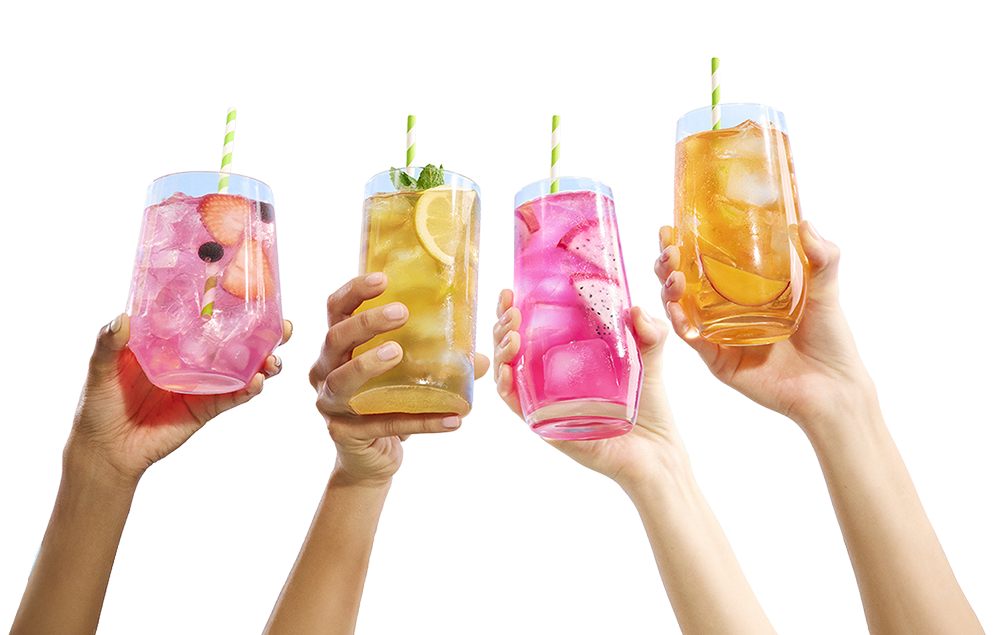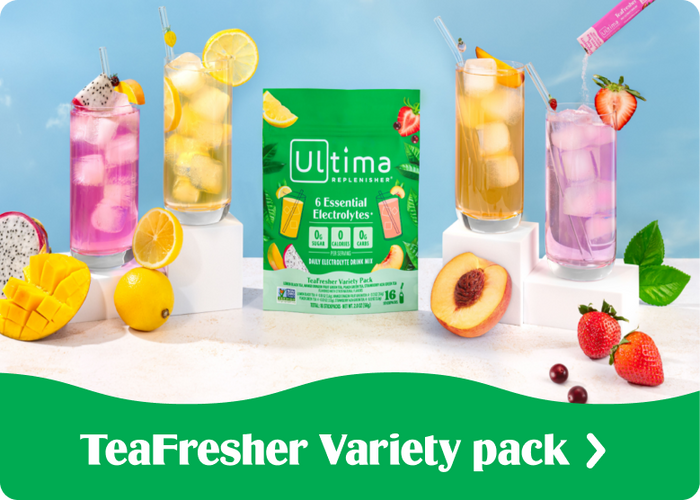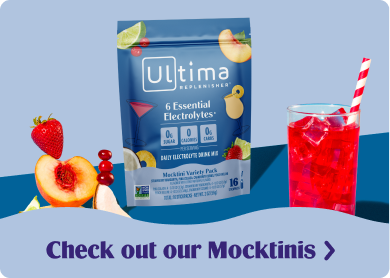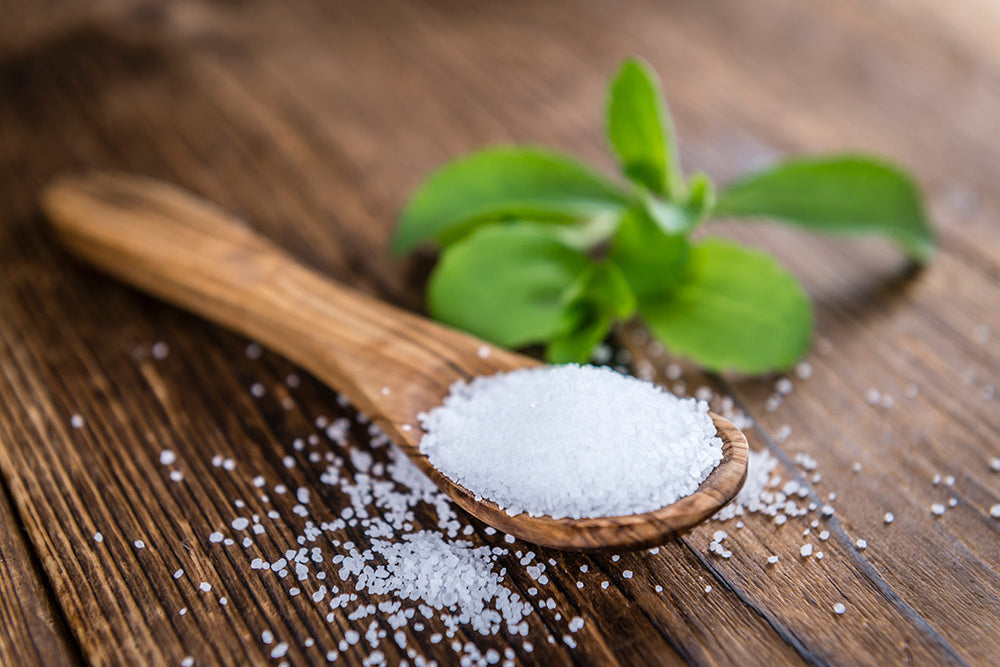
The Sweet Spot: No Sugar vs No Added Sugar
No sugar, no added sugar, naturally sweetened, lightly sugared–what do those labels on drinks actually mean? If you have certain health conditions, are allergic to artificial sweeteners, or simply want an electrolyte drink without sugar in it, you’ll want to understand the differences in meaning.
What’s the Difference Between No Sugar, No Added Sugar and Unsweetened?
You often see these phrases listed on fruit juices, sports drinks, fruit snacks, and many other fruit products. And while they might be marketing derived, they are not just marketing phrases meant to grab your attention.
No sugar/ Sugar-Free
A product is considered no sugar or sugar-free if there is less than 0.5 grams of sugar/serving, as regulated by the FDA.
No added sugar
It’s common to see this claim on fruit juices and fruit preserves. Because fruit naturally has sugar in it, there will be sugar content in juices and foods that contain actual fruit. No added sugar means that while the product has naturally occurring sugar in it, no other sugar was manually added at the time of processing or packaging.
Unsweetened
An unsweetened label claim means that there are no added sugars, artificial sweeteners, stevia, or sugar alcohols. However, the product can still contain sugars that are naturally occurring. You’ll often see this label featured on drinks like coconut milk, iced tea, almond milk, and others.
Benefits of hydrating with sugar for some people
So, what’s the bottom line when it comes to hydration? Is sugar a big deal in your electrolyte drinks? Well, it depends on how much sugar and what intensity level of exercise you want to hydrate through.
A little bit of sugar and a little bit of salt is not a bad thing when it comes to hydration for many people and certain circumstances. Sugar and salt can help you more quickly absorb water into your small intestine and distribute it throughout your body. This is known as oral rehydration therapy, created by Doctor Robert Crane.
Plus, a little bit of sugar can offer athletes quick energy. If you routinely work out for 90+ minutes a day, sugar can give you fast-acting energy to sustain your workouts. However, that doesn’t mean you should spike your blood sugar levels every time you need to hydrate.
Even if a little bit of sugar is not a bad thing, the source of your sweetener is extremely important. If you’re on the keto diet, diabetic, or concerned about cavities, there are some sweeteners you should avoid.
Avoiding artificial sweeteners in your electrolyte drinks
You should be wary of artificial sweeteners like sucrose, acesulfame potassium, and dextrose when choosing an electrolyte drink. Artificial sweeteners can interfere with your good gut bacteria, which are integral to your overall health.
If you have diabetes, you should also be aware that American Diabetes Association cautions against using artificial sweeteners regularly because “there is a great deal of research questioning their overall safety and long-term impacts on your health,” and uncertainty around the impact on insulin resistance and weight-gain.
Sucralose is a common no-calorie sweetener seen in tabletop sweetener packets and in many vitamin-fortified drinks and electrolyte drinks. In 2016, the Center for Science in the Public Interest downgraded sucralose’s safety rating from “caution” to “avoid.”
Another artificial sweetener you may want to avoid is acesulfame potassium. It hides amongst other sweeteners to offer a more “sugar-like” taste. There is some research that believes it is known to disrupt the body’s metabolic process and our appetite regulation.
Dextrose is a simple sugar derived from genetically modified (GMO) corn commonly found in processed foods and sports supplements. It can provide quick energy, but like all simple sugars, because it gets quickly absorbed into your system, it can spike your blood glucose levels.
What is stevia sweetener?
Stevia sweeteners have gained popularity as a sugar substitute in recent years and can be found in Ultima Replenisher’s hydration powders.
Stevia is a naturally occurring sweetener extracted from a Latin American plant. The stevia sweetener can be extracted from either two compounds, rebaudioside A or stevioside. Ultima uses rebaudioside A, which is the highest grade of organic stevia. Each of these compounds contains zero calories, but stevia is intensely sweet. The plant also has many nutrients, making it a popular plant due to some health benefits connected to lower blood sugar, blood pressure, and insulin levels. Stevia is a naturally occurring sweetener with zero calories.
Benefits of hydrating without sugar
For everyday hydration, you don’t want to add more sugar into your diet than necessary. Did you know that Americans consume more than 17 teaspoons on average daily? According to the Dietary Guidelines for Americans, we should only have about 12 teaspoons of sugar on a 2,000-calorie diet. Simple, processed sugars in excess amounts can lead to weight gain, insulin resistance, and tooth decay.
If you have diabetes or prediabetes, you should avoid all those extra additives in cheap sports drinks, like artificial colors, flavorings, and sweeteners. High-quality ingredients are the key to restoring your electrolyte levels in a healthier way.
If you’re following the keto diet, then you’ll want a keto-friendly electrolyte drink without sugar. An electrolyte drink with a naturally occurring sugar or sweetener like stevia is the better choice to stay sugar- and carb-free.
Replenish your electrolytes with zero sugar
Ultima Replenisher hydration powders only use fruit and plant-based flavors and colors, making them gluten-free, vegan, Paleo, Keto, and Non-GMO.They’re also the perfect sugar-free electrolyte drink for diabetics because Ultima is truly zero sugar and doesn’t carry extra additives.
So, if you’re looking to choose a delicious no-sugar electrolyte drink, Ultima’s Tropical Variety Stickpacks offers four tasty flavors to upgrade your hydration routine. Those looking to add in hydration at the end of a long day should try Ultima’s new Mocktini powders, like Peach Bellini, Appletini, and Coconut Piña Colada.